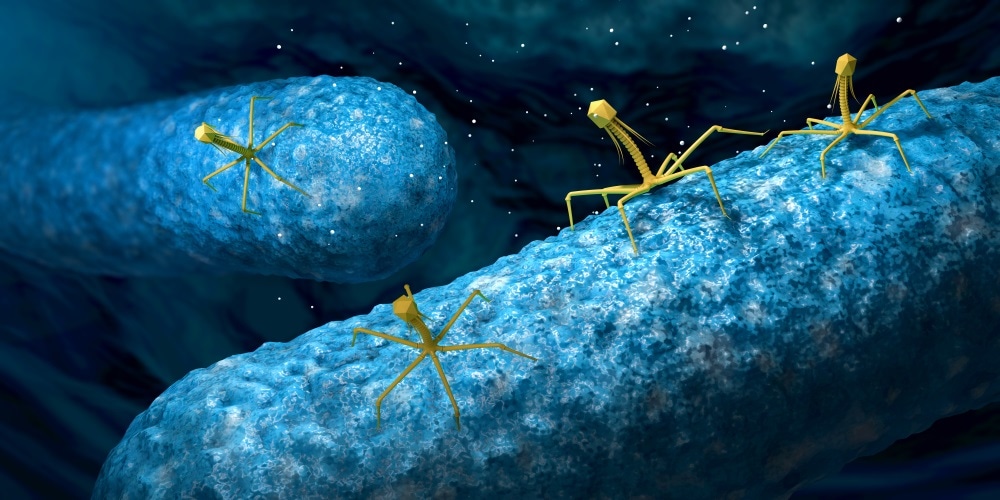For the first time, researchers have successfully used bacteriophage (phage) therapy to eliminate alcohol-related liver disease in an animal model.
 Image Credit: Christoph Burgstedt / Shutterstock.com
Image Credit: Christoph Burgstedt / Shutterstock.com
Bacteriophages are viruses that infect and destroy bacteria. The team, which included researchers from King's College London and the University of California San Diego School of Medicine, found that they could eradicate the condition using a specific cocktail of phages to target a toxin-producing bacterium in the gut that is linked to the disease.
The discovery could lead to a new treatment for patients with severe alcoholic hepatitis.
Chronic liver disease is the third leading cause of premature death and lost working life after heart disease and self-harm. In the UK, the majority of people with alcohol-related liver disease die at a young age, with 90% aged under 70 years and more than 10% only in their 40s.
Patients with severe alcoholic hepatitis had high levels of a certain gut bacteria
As recently reported in the journal Nature, Debbie Shawcross and colleagues found that patients with severe alcohol-related liver disease had high levels of a particular type of gut bacterium.
They discovered that in the case of alcoholic hepatitis, liver cells are damaged by a toxin called cytolysin, which is secreted by a naturally occurring bacterium in the gut called Enterococcus faecalis.
The researchers found that cytolysin-producing E. faecalis is much more abundant in the guts of people with severe alcohol-related hepatitis than it is in the guts of healthy individuals. The more abundant the E. faecalis, the more severe the liver disease was.
On analyzing samples collected from patients with the disease, the team found that almost 90% of patients who were cytolysin-positive died within 180 days of being admitted to hospital, while only 4% of patients who were cytolysin-negative died within this period.
Targeting the bacterium with a cocktail of phages
To investigate whether phage therapy could help, the team isolated four types of phages that they knew specifically target cytolysin-producing E. Faecalis and infused mice with the phage cocktail. After treatment, E. faecalis was eradicated in the mice, and alcohol-related liver disease also disappeared.
As a control experiment, the researchers used phages that target non-cytolytic E. faecalis or other bacteria and found that those phages had no effect on the disease.
This ground-breaking study has evaluated the potential role of bacteriophages - viruses that specifically kill populations of bacteria in the gut - to beneficially change the gut microbiome in alcohol-related disease,”
Debbie Shawcross, Professor of Hepatology and Chronic Liver Failure, King's College London.
The approach now needs to be expanded to be tested in human clinical trials
Currently, severe alcoholic hepatitis is typically treated using corticosteroids, but this approach is not particularly effective. The only cure for the condition is early liver transplantation, but this option is only offered at selected medical centers, and the number of patients who receive a transplant is limited.
“The study team has shown that bacteriophages can specifically target cytolytic E. faecalis, providing a method to precisely edit the gut microbiome and offering new treatment for patients with severe alcoholic hepatitis,” says Shawcross.
"This novel avenue of research now needs to be expanded to test the safety and effectiveness of phage therapy in human clinical trials in patients with alcohol-related disease. It is also likely that other forms of chronic liver disease associated with changes in the gut microbiome will also benefit from this novel approach, such as fatty liver disease," she concludes.
Source:
Phage therapy shows promise for treating alcoholic liver disease. Eurekalert. Available at: https://www.eurekalert.org/emb_releases/2019-11/kcl-pts111219.php